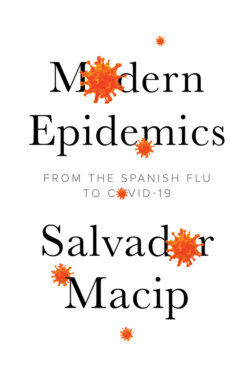Читать книгу Modern Epidemics - Salvador Macip - Страница 13
They were here first
ОглавлениеMicrobes are the oldest inhabitants of this planet. They’ve been around for between 3,000 and 4,000 million years, but humans didn’t discover them until a little more than a century ago when science was sufficiently advanced to let us see them close up with the aid of a microscope. During the first 2,000 million years, microbes, and specifically bacteria, had the Earth to themselves. They were the first to appear and will doubtless be the last to leave because they are not only the most diverse form of life but are also the one that most easily adapts to any conditions. If a catastrophe wiped out most life on Earth, they would probably be the only survivors.
There are more than a million kinds of microorganisms, most of them inoffensive. The main ones are bacteria and viruses, but to these must be added certain fungi, algae and amoebas. In both number and weight, microorganisms are predominant among living beings. If we could put all the microbes on one side of the scale and all the animals on the other, the microbes would weigh twenty-five times more. The fastest growing microbes duplicate every thirteen minutes, and the slowest every fourteen days. At this rate, if a single bacterium had all the possible nutrients and the right conditions, it could generate a colony that would weigh as much as the whole Earth in three days.
We shouldn’t forget that it’s thanks to microbes that this planet is habitable. Some 2,700 million years ago, there appeared a certain kind of bacterium that was able to use sunlight to transform water and CO2 into energy. A secondary effect of this process, which is called photosynthesis, is generation of oxygen. Like toxic exhaust fumes given off by a car engine, the oxygen kept accumulating in huge quantities and ‘contaminating’ the Earth’s atmosphere. This inadvertent pollution ended up being providential for us as it permitted the appearance of a new class of beings – humans among them – that needed oxygen for their basic functions. To this very day, bacteria are important for keeping the planet in balance. Without them, life on Earth would be wiped out.
